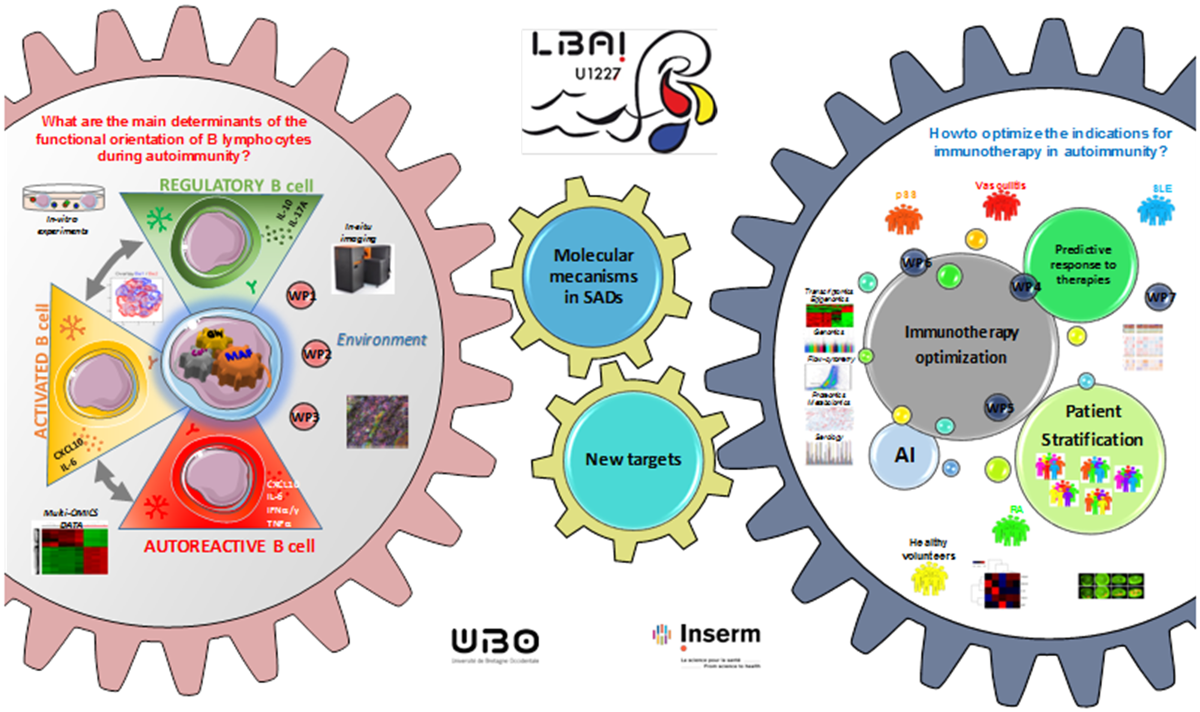Our scientific project aims to better understand the main determinants that govern the fate of a B cell, and in particular its functional orientation towards an activating (or pro-inflammatory) or a regulating (or anti-inflammatory) profile, and how these can be controlled.
We hypothesize that these determinants are both extrinsic (cytokinic and cellular microenvironment) and intrinsic to B cells (antigen specificity and self-reactivity, intracellular signal transduction pathways, in particular via the antigen receptor), explaining the heterogeneity of these cells on an individual scale and their abnormal functions in patients with SADs.
In addition, despite recent advances in terms of understanding the pathophysiological mechanisms of SADs and the development of many targeted immunotherapies, no treatment has, to date, proven its efficacy in most of these diseases, especially in pSS (Saraux Nat Rev Rheumatol 2016, PMID: 27411907). The failures of the various clinical trials conducted in recent years could be explained by several factors, including the absence of validated response criteria, but also the heterogeneity of the patients, both clinically and biologically in the different SADs (Cornec Nat Rev Rheumatol 2016, PMID: 27464484). The pathophysiological pathways involved in the development of the diseases are variable between individuals. The IMI PRECISESADS project, owing to a multi-omic approach performed on a large cohort of more than 2,500 subjects suffering from SADs , proposed a new taxonomy of these patients based on a molecular signature and not only on the clinical features (PRECISESADS seminal paper, Barturen et al. medRxiv 2020)
We therefore articulate the scientific project of our Unit around two main complementary and interconnected axes:
1) a fundamental axis dedicated to understanding the mechanisms governing the functional orientation of B cells in order to discover new potential therapeutic targets for SADs
2) a translational focus aimed at developing new tools to improve the efficacy of immunotherapies (including those targeting B cells) in different clinical settings (autoimmunity, alloimmunity, cancer), based on better patient stratification, better understanding of the mechanisms of actions of these treatments, the prediction of the response to treatment, and the development of treatments and innovative therapeutic strategies.





